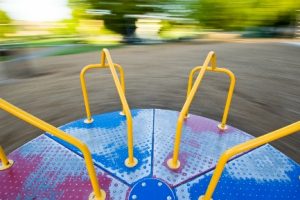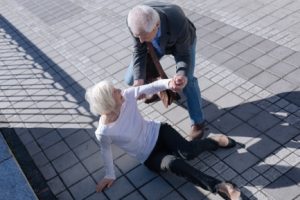Live Webinar for Therapists. Complete all sessions for 14.5 Contact Hours (1.45 CEUs).
April 1, 8, 15 and 22, 2025
5:10 pm EST • 4:10 pm CST • 3:10 pm MST • 2:10 pm PST (US)
SAVE $20 when you register by February 18, 2025. Use coupon code EARLYBIRD20 at checkout.
COURSE DESCRIPTION:
Have you ever considered the importance of the sensory system that detects movement while rehabilitating children and adolescents? The pediatric patient will experience vestibular dysfunction at similar rates as adults and any change either peripheral or central can greatly impact normal development of movement and postural control. This course will present current understanding of the scope of the vestibular dysfunction problem, best practices, systematic evaluation, and treatments addressing vestibular deficits in the school-aged child and adolescent. The course combines lecture, demonstration, and case study to address dysfunction accurately and efficiently. This course is updated as new information and guidelines are published. The primary goal is to challenge therapists to re-think movement and stability in their practice, using a comprehensive understanding of the vestibular system. Principles presented can be applied across the lifespan and with a multitude of disability levels. Access to videos of demonstrated techniques will be included.
LEARNING OBJECTIVES:
- Identify functional impairments or complaints by children and/or their parents that indicate the need for a vestibular screening.
- Recognize at least three vestibular diagnoses in children that affect motor performance and development.
- Relate the functions of the vestibular system to normal skill development in children and adolescents.
- Connect vestibular dysfunction to problems in motor performance and behaviors during child development.
- Choose age-appropriate assessment tool to evaluate a child for vestibular dysfunction.
- Determine an appropriate individualized treatment program for a pediatric patient with vestibular dysfunction.
- Advance an intervention plan to address a child’s functional impairment(s).
AUDIENCE:
This course is appropriate for PTs, PTAs, OTs OTAs, and health practitioners that work with school-aged children and adolescents AGE 5-18.
Join the ERI Facebook Discussion Group – Pediatric Vestibular Rehabilitation
Inger Brueckner, MS, PT, has practiced vestibular rehabilitation since 1994. She began teaching after completing the Emory University/APTA Vestibular Competency course in 2003. In 2010 she joined the Rocky Mountain Hospital for Children Center for Concussion as the creator and director of PACER (Progressive Acute Concussion Exertional Rehabilitation). She is a member of a multi-disciplinary team focused on providing cutting-edge, effective, safe rehabilitation. Working for Presbyterian/St. Luke’s Medical Center in Denver, CO, she has presented research findings at APTA CSM, published journal article, book chapter, developed protocols, and been invited to speak at international, national, and local conferences. She is passionate about providing the best care for all patients in a collaborative medical team, sharing lessons learned through continuing education.
Additionally, Inger Brueckner is the principle physical therapist treating limb loss at Presbyterian/St. Luke’s Medical Center. Her experience spans many age groups, causes and levels of limb loss and amputee working in a multidisciplinary team dedicated to the advancement of function in this population. With a master’s in PT, Inger has worked primarily as an outpatient therapist and hospital-based outpatient center. She co-authored an article on pre-prosthetic training and has presented at national and international conferences.
VENUE LOCATION MAP
Click image to access Google Maps.
Continuing Education Hours for disciplines not listed below: 14.5 contact hours (1.45 CEUs). Intermediate level. License #______________.
Education Resources Inc. is an AOTA Approved Provider of professional development. Course approval ID# 09596. This Distance Learning Interactive Course is offered at 14.5 contact hours, 1.45 CEUs, Intermediate level, OT Service Delivery & Foundational Knowledge. This course can be used toward your NBCOT renewal requirements for 14.5 units. Provider for the FL Occupational Therapy Association CE Broker for 17 CE Hours - approval #20-765747. This course has been approved by the MD State Board of Physical Therapy Examiners for 14.5 Continuing Education Hours. Approval #2201-81 by the NJ State Board of Physical Therapy Examiners for 14.5 CEC's. Approved Provider for OK State Board of Medical Licensure & Supervision #BAP202310003. Approved sponsor by the State of IL Department of Financial and Professional Regulation for Physical Therapy for 17 contact hours. Approved provider by the NY State Board of Physical Therapy for 17 contact hours (1.7 CEUs). Education Resources is an approved agency by the PT Board of CA for 14.5 contact hours. This activity is provided by the TX Board of PT Examiners accredited provider #2210017TX for 14.5 CCUs and meets continuing competence requirements for PTs and PTAs licensure renewal in TX. 12 hours of this course qualify towards the discipline-specific hours for the 20-hour requirement for NDTA re-certification. They do NOT qualify towards the 8-hour NDTA Instructor requirement for re-certification.
Education Resources Inc., 266 Main Street, Suite 12, Medfield, MA 02052 508-359-6533






